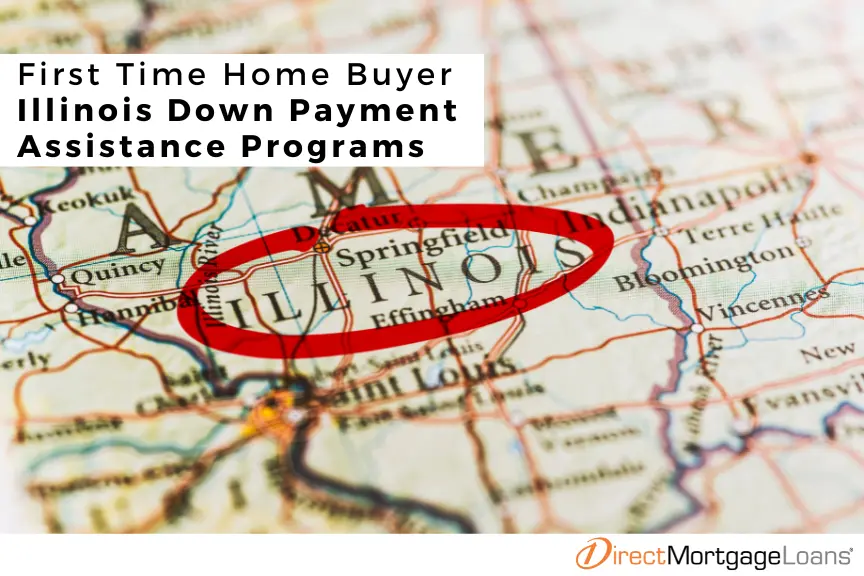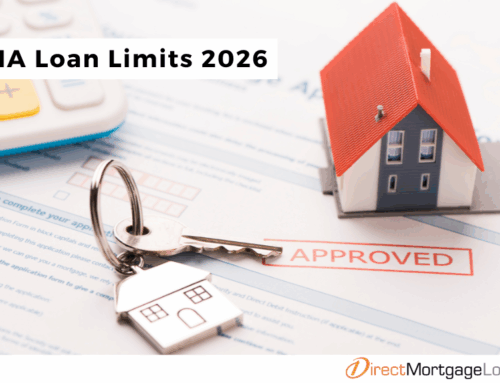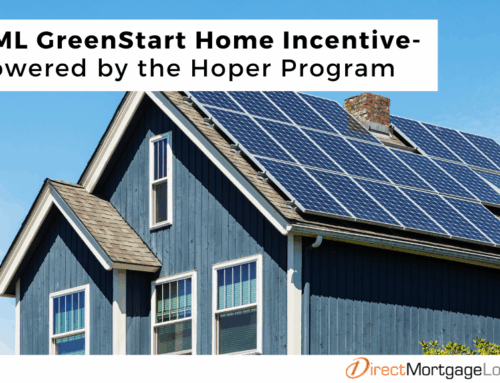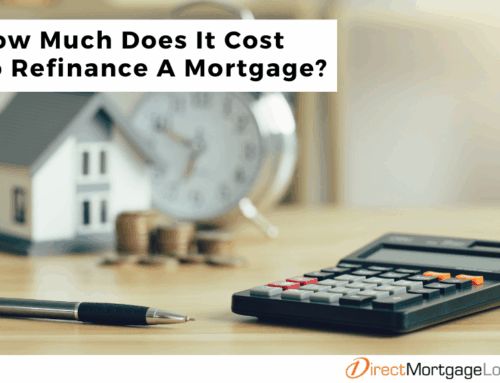Buying your first home is an exciting milestone, but it can also feel daunting—especially when it comes to affording the upfront costs. In Illinois, there are several down payment assistance programs designed to help first time home buyers turn their dream of homeownership into reality. These programs, offered through the Illinois Housing Development Authority (IHDA), provide grants, forgivable loans, and tax benefits to make buying your first home more achievable. Let’s explore these resources and how they could work for you.
Subscribe to our blog to receive notifications of posts that interest you!
Does Illinois have a down payment assistance program?
Illinois offers multiple down payment assistance programs for first time home buyers, administered by the Illinois Housing Development Authority (IHDA). These programs provide financial support for down payments and closing costs, making homeownership more accessible.
There are many IHDA with varying eligibility requirements for each program. Speaking with a Direct Mortgage Loans loan expert will allow you to gain a better understanding of your options for down payment assistance in Illinois.
Understanding First Time Home Buyer Programs In Illinois
Becoming a homeowner for the first time often comes with financial challenges, but Illinois offers several programs to help make the process more accessible. These initiatives are designed to address specific barriers, such as high upfront costs or limited tax benefits, by providing targeted solutions like forgivable loans, deferred payments, and tax credits. Whether you’re looking for immediate financial assistance or long-term savings, Illinois has options tailored to meet the unique needs of first time home buyers in Illinois.
Deferred Second Mortgage
A deferred second mortgage is a valuable option for first time buyers who need financial assistance but want to avoid monthly payments on the loan. Key features include:
- Payment Flexibility: You don’t have to make payments on the second mortgage until you sell, refinance, or pay off the home.
- Down Payment Assistance: Funds could cover both your down payment and closing costs.
- No Immediate Repayment: Ideal for buyers who expect their financial situation to improve over time.
This type of program is especially beneficial for buyers who need immediate assistance but want to keep their monthly housing costs as low as possible.
Forgivable Second Mortgage
The forgivable second mortgage program provides buyers with funds for their down payment and closing costs, with the loan being forgiven after a certain period, usually five to ten years. This option is best for buyers who plan to stay in their home long-term.
Key Benefits: There is no repayment required if you stay in the home for the specified time frame. The forgivable second mortgage program helps reduce upfront financial burden.
Eligibility: To be eligible, you must meet program requirements, including income limits and home buyer education completion.
First Time Home Buyer Grants
Grants are an excellent choice for buyers looking for financial assistance without the obligation to repay. Unlike loans, grants are essentially a gift to help with your home purchase.
Advantages: The assistance is fully forgiven, with no repayment required, regardless of the duration of homeownership. Grant funds can be applied toward essential upfront costs, including the down payment and closing costs, reducing the financial burden on buyers.
Limitations: Availability may be limited to specific regions or demographics. These programs are ideal for buyers who qualify for assistance and do not want additional financial obligations after closing.
Mortgage Credit Certificate
The MCC program provides a federal tax credit to first time home buyers, allowing you to claim a portion of your mortgage interest as a credit on your taxes each year.
- How It Works: The credit applies annually, reducing your overall tax burden. The Mortgage Credit Certificate can be combined with other assistance programs to further lower homeownership costs.
- Benefits: This credit directly lowers the amount of federal taxes owed, providing significant long-term savings for eligible buyers. By decreasing tax obligations, the program increases buyers’ disposable income, making it easier to manage monthly mortgage payments.
Illinois First Time Home Buyer Programs
Illinois offers a variety of tailored programs to assist first time home buyers in achieving their homeownership goals. These programs, administered by the Illinois Housing Development Authority (IHDA), provide flexible solutions like forgivable loans, deferred mortgages, and repayable assistance to help with down payments and closing costs. Each program is designed to address different financial needs, ensuring buyers of varying income levels and credit profiles can find the support they need. By exploring these options, first time buyers could reduce the upfront financial burden and secure a pathway to homeownership in Illinois.
Illinois IHDAccess Forgivable Mortgage
This program offers up to 4% of the home’s purchase price (up to $6,000) in assistance. The loan is forgiven after 10 years, provided you remain in the home.
Requirements For Illinois IHDAccess Forgivable Mortgage
- You must meet IHDA’s income and purchase price limits.
- You must contribute $1,000 or 1% of the purchase price (whichever is greater).
- You must also complete a home buyer education course.
Illinois IHDAccess Forgivable Pros And Cons
IHDAccess Forgivable Mortgage Pros
- There is no repayment if you stay in the home for 10 years.
- This program could even cover the down payment and closing costs.
IHDAccess Forgivable Mortgage Cons
- This mortgage program requires a long-term commitment to avoid repayment.
- The program may have higher upfront costs compared to other programs.
Illinois IHDAccess Deferred Mortgage
The deferred program offers up to $7,500 in assistance, repayable only when the home is sold or refinanced.
Requirements For Illinois IHDAccess Deferred Mortgage
- This program is similar to the forgivable mortgage program, including income and purchase price limits.
- You must also complete a home buyer education course.
Illinois IHDAccess Deferred Pros And Cons
IHDAccess Deferred Mortgage Pros
- No monthly payments on the program are required.
- The program provides substantial financial assistance upfront.
IHDAccess Deferred Mortgage Cons
- This loan must be repaid if you sell or refinance the home at any point.
- This program is limited to specific income brackets and property types, which may drive away some customers.
Illinois IHDAccess Repayable Mortgage
This program provides a 10-year, interest-free loan of up to $10,000 for down payment assistance.
Requirements For Illinois IHDAccess Repayable Mortgage
- This program carries the same requirements for the other programs, including the home buyer education course.
Illinois IHDAccess Repayable Pros And Cons
IHDAccess Repayable Mortgage Pros
- There are no interest charges on the loan.
- This program has a higher assistance amount than other IHDA programs.
IHDAccess Repayable Mortgage Cons
- The monthly repayment requires over 10 years.
- This program will also reduce your disposable income during repayment.
Go Direct FHA 100% Financing for Illinois Home Buyers
Direct Mortgage Loans is proud to offer the Go Direct FHA 100% Financing program to eligible home buyers in Illinois, providing a powerful path to homeownership with no down payment required.
Go Direct FHA 100% Requirements for Illinois Home Buyers
To qualify for this program; applicants must meet the following criteria:
- Minimum FICO credit score of 620
- Completion of a Home Buyer Education course to better understand the home buying process
Eligible Property Types Include:
- Single-family homes
- Duplexes
- Manufactured homes
- PUDs (Planned Unit Developments)
- Townhouses
- Condos
Direct Mortgage Loans Law Enforcement Home Buying Program In Illinois
At Direct Mortgage Loans, we’re proud to support those who protect and serve Illinois communities. Through our partnership with the Fraternal Order of Police, we’ve developed a home financing program specifically for law enforcement professionals across the state.
This program offers exclusive mortgage benefits to eligible officers and first responders, making it easier and more affordable to purchase a home. We recognize the sacrifices made every day by those in uniform and we’re here to return the favor by simplifying the home buying journey.
Whether you’re buying your first home or relocating within Illinois, our team is ready to guide you through the process with personalized support and special loan options designed just for you.
Direct Mortgage Loans Law Enforcement Home Buying Program Benefits
As a Law Enforcement Officer, you have the ability to choose from one of the following benefits:
- $500 Closing Cost Credit
- $500 Gift Card
- First Year’s Payment of a Home Warranty through our partnership with Liberty Home Guard
Additionally, we will donate $100 to the FOP Foundation in the name of the FOP member, supporting the foundation’s important causes.
Illinois First Time Home Buyer Qualifications
To qualify for Illinois first time home buyer programs, applicants must meet the following criteria:
- Income Limits: These limits may vary on the size of the household and where it is located.
- Purchase Price Limits: The property must fall within program-defined limits.
- First time Buyer Status: Buyers must not have owned a home in the past three years (exceptions may apply for veterans or targeted areas).
- Credit Requirements: Most programs require a minimum credit score, typically around 640.
First Time Home Buyer Loans In Illinois
First time home buyers in Illinois have access to several types of loans that cater to various financial situations. These loan programs often complement state and federal assistance initiatives, making it easier to purchase a home. Common loan options include:
VA Loan
Who It’s For: Eligible veterans, active-duty service members, and surviving spouses.
Key Benefits: VA loans do not require a down payment, making homeownership more accessible for eligible veterans and active-duty service members. These loans eliminate the need for private mortgage insurance (PMI), which can significantly lower monthly payments. Borrowers often receive competitive mortgage interest rates, which can reduce the overall cost of the loan over time.
FHA Loan
Who It’s For: Buyers with lower credit scores, limited savings, or first time home buyers.
Key Benefits: FHA loans allow borrowers to qualify with a low down payment requirement of just 3.5%, making it easier for first time home buyers to afford a home. These loans are accessible to borrowers with credit scores as low as 580, providing opportunities for those with less-than-perfect credit. This option is much more accessible to a wide range of borrowers due to the flexible debt-to-income (DTI) ratio requirements, enabling borrowers with existing debt to qualify.
USDA Loan
Who It’s For: Buyers in rural and eligible suburban areas.
Key Benefits: USDA loans require no down payment, making them an excellent option for buyers with limited upfront savings. Borrowers benefit from competitive fixed interest rates, which can reduce the long-term cost of the loan. The program is designed to promote homeownership in rural and eligible suburban areas, offering opportunities in regions where housing costs are typically lower.
How To Apply For Illinois First Time Home Buyer Programs
Applying for these programs is a straightforward process:
- Review Program Requirements: Talk to a trusted mortgage lender, like Direct Mortgage Loans to determine your eligibility.
- Complete Home buyer Education: Enroll in an IHDA-approved course to meet program requirements. Direct Mortgage Loans offers complete home buyer guides to assist you in your home buying journey.
- Submit Documentation: Provide proof of income, credit history, and other necessary paperwork.
How Do I Find Participating Mortgage Lenders in My Area?
IHDA provides a Participating Lender Tool to help you locate approved mortgage lenders near you. Additionally, Direct Mortgage Loans can assist in navigating Illinois first time home buyer programs and tailoring options to your needs.
FAQ’s About First Time Home Buyer Illinois Down Payment Assistance Programs
Do Illinois home buyer programs cover closing costs?
Yes, many Illinois home buyer programs, particularly those administered by the Illinois Housing Development Authority (IHDA), allow assistance funds to be used for both closing costs and down payments. Programs such as the IHDAccess Deferred and Forgivable Mortgages are designed to reduce the financial burden of upfront costs, ensuring first time buyers can focus on their long-term homeownership goals. However, eligibility criteria and limits on the amount that can be applied to closing costs vary by program, so it’s essential to review the program details carefully.
Are there tax benefits for first time home buyers in Illinois?
Yes, one significant benefit is the Mortgage Credit Certificate (MCC) program, which allows eligible buyers to claim a federal tax credit for a percentage of their annual mortgage interest. This tax credit reduces your tax liability, freeing up more income for other expenses. Additionally, first time buyers may qualify for Illinois-specific tax incentives, such as property tax reductions for certain income brackets or first time buyer categories. It’s recommended to consult with a tax advisor to fully understand the benefits available to you.
What is the minimum down payment in Illinois?
The minimum down payment depends on the loan type and assistance program:
- FHA Loans: Require a down payment of at least 3.5% for borrowers with a credit score of 580 or higher.
- Conventional Loans: Typically require a minimum down payment of 3% to 5%, depending on the credit score of the borrower(s).
- VA and USDA Loans: Both offer options with no down payment required.
For buyers leveraging IHDA programs, down payment assistance could further reduce or eliminate this requirement.
What is the income limit for first time home buyers in Illinois?
Income limits for Illinois home buyer programs vary by household size, location, and the specific program. For instance:
- IHDA programs set limits based on area median income (AMI) to ensure assistance is directed toward those who need it most.
- In higher-cost areas, such as the Chicago metro region, income limits may be higher compared to rural areas.
IHDA Mortgage offers up to date information about your mortgage needs. Additionally, Direct Mortgage Loans is licensed in Illinois and is able to take you step by step through your personalized mortgage journey.
How much are closing costs in Illinois?
Closing costs in Illinois typically range between 2% and 5% of the home’s purchase price, depending on the property value and loan type. These costs may include:
- Lender Fees: They are a common part of closing costs and cover expenses related to processing, underwriting and originating the mortgage.
- Title Insurance: Title insurance protects both the buyer and the lender from potential legal disputes or claims over property ownership, providing peace of mind during the transaction.
- Property Taxes: Prepaid property taxes are collected at closing to ensure that taxes owed for the period after the purchase are paid in advance and remain up to date.
- Homeowners Insurance: The first year of homeowners insurance premiums must be paid upfront at closing to guarantee that the property is protected immediately after the purchase.
Many IHDA programs allow you to use assistance funds to cover closing costs, reducing out-of-pocket expenses. Buyers should plan to account for these additional costs when budgeting for their home purchase.
Down payment programs subject to additional eligibility requirements that may vary. Eligibility and approval is subject to completion of an application and verification of home ownership, occupancy, title, income, employment, credit, home value, collateral and underwriting requirements. Loan products described here may not be available at the time of application. All products are subject to eligibility and availability.Reach out to your lender to learn more. Direct Mortgage Loans, LLC NMLS ID# is 832799 (www.nmlsconsumeraccess.org). Direct Mortgage Loans, LLC office is located at 11011 McCormick Rd Suite 400 Hunt Valley, MD 21031. Equal housing lender.







Leave A Comment
You must be logged in to post a comment.